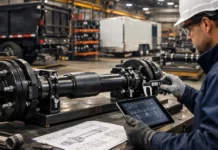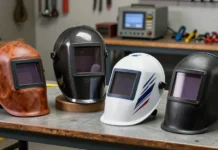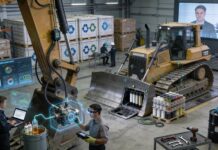Anything that does not add value to the end product is waste, isn’t it? Lean manufacturing aims to minimize this waste and improve efficiency, speeding up projects and processes by saving maximum resources while giving customers exactly what they desire. Cutting waste, saving time, and boosting output—that’s what lean maintenance is. But the thing is, most manufacturing plants find it difficult to stay lean when they’re buried in spreadsheets, paperwork, and old maintenance logs. Sound familiar? You’re not alone.
The Chaotic Nature of Old Maintenance Methods
Old-school maintenance systems are not just slow; they’re a liability. Technicians lose hours looking for tools or chasing down part numbers. Scheduled jobs get missed. Emergency repairs start becoming the rule rather than the exception. It’s aggravating, and more than that, it’s costly. This is where CMMS takes care of the mess. It’s an acronym for Computerized Maintenance Management System. But don’t let the name fool you into thinking it’s complicated. The tool is all about making things easier, quicker, and smarter.
How Manufacturing Becomes Lean with CMMS
Lean maintenance isn’t magic. It’s process-driven. At the heart of that process is CMMS software. Consolidating maintenance data keeps your staff from duplicating efforts and reduces downtime. Instead of sifting through papers, your crew has all the details they need at their fingertips—work orders, equipment histories, asset information, you name it. Applying visual management principles can further enhance lean maintenance by making performance data and maintenance status visible across the shop floor, helping teams spot inefficiencies before they grow.
Want fewer breakdowns? CMMS preventive maintenance is second to none. You want a little data to make your decision. Right? It consolidates the correct information automatically. It saves time and helps teams react before things break rather than after. That’s lean thinking.
Power and Predictive Value without the Pain
Let’s talk foresight. With the help of a CMMS, you’re no longer guessing when equipment will fail—you can see the signals it sends. It would be like your car’s check engine light, but much smarter. The system signals you when the activity looks odd before it becomes a full-fledged problem. Sensors and a maintenance log are combined to give you early warnings.
That way, you won’t over-service machines or spend money on parts you don’t need! You’re making decisions based on the latest data. That’s efficient. That’s lean.
It Holds People Responsible In a Good Way
Have you ever had work “fall through the cracks”? Or even worse, is everyone convinced someone else did it? CMMS takes that jumble off the table. Every task has a name, a due date, and a digital trail. Nothing disappears. No more finger-pointing.
Technicians know what is expected of them, and managers clearly understand performance. The result? Less chaos and more cooperation.
Mobile Access Equals Faster Fixes
Paper-based systems can’t stay with you on the go. CMMS can. Mobile apps are almost a given nowadays. A tech receives an alert, scans a bar code, and logs the repair without leaving the site. So, less walking. Fewer delays. More doing. That’s lean in action.
Inventory That Doesn’t Waste Space or Money
Holding too many parts is just as problematic as not stocking enough. A great CMMS also manages inventory levels and usage trends. It’ll let you know when stocks are low and prevent over-ordering. You save money and shelf space while maintaining readiness.
Bonus: no more “mystery boxes” in the store’s back corner.
Real Results, Real Fast
The benefits are visible in weeks, not months. Most facilities implementing a CMMS see solid results in weeks, not years. Fewer unplanned outages, shorter repair times, and higher asset uptime make life easier for everyone handling operations at a factory. It’s not a silver bullet. But it’s close.
Human-Friendly Tech
Using a CMMS doesn’t require a degree in computer science. Most CMMSs are designed for people who understand the importance of developing user-friendly and intuitive software. CMMS software products are intuitive, visual, and, strangely, relatively easy to get used to.
And what are you worried about, training time? Most teams get the hang of it fast. Because when a product truly enables people to work better, they tend to adopt it.
Conclusion
In theory, lean maintenance makes sense, but it’s a slog without the right resources. You can’t slash waste with pinwheels. Or increase uptime with sticky notes. CMMS addresses and organizes this mess. It links together your people, machines, and data in a way that works. If your team is getting tired of constantly being on the defensive, perhaps it’s time to give CMMS a try. Not for the buzzword. But for the breathing room.
































